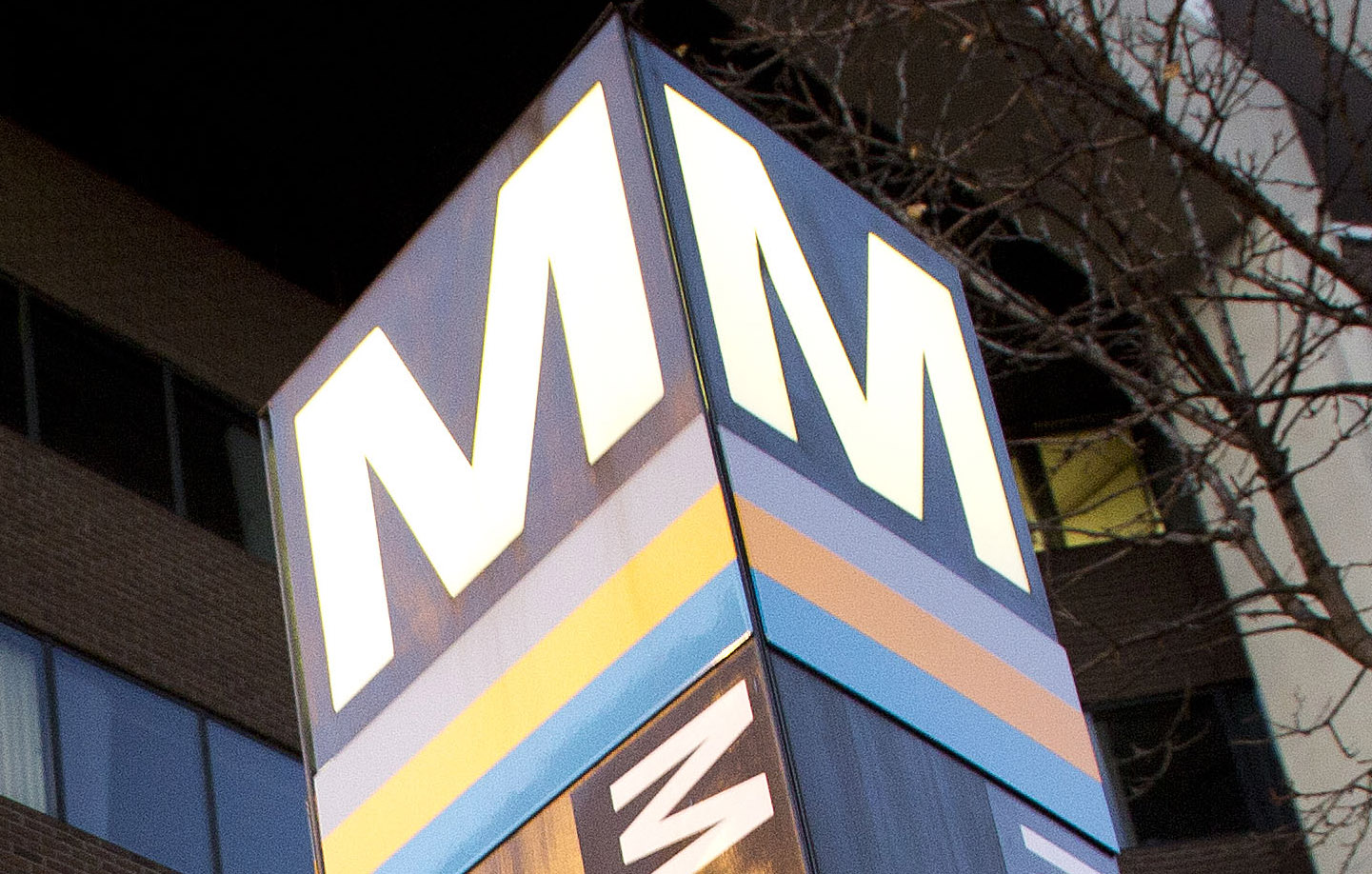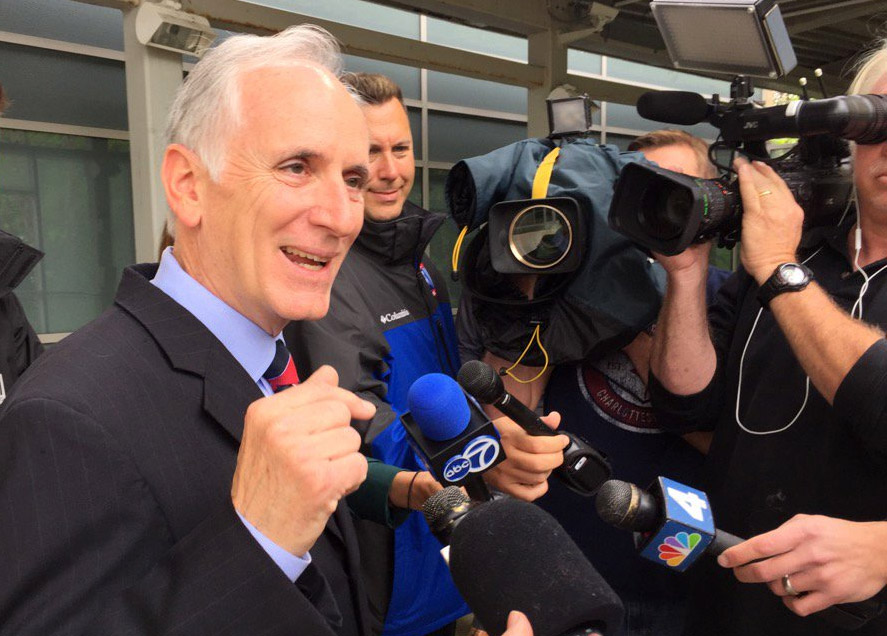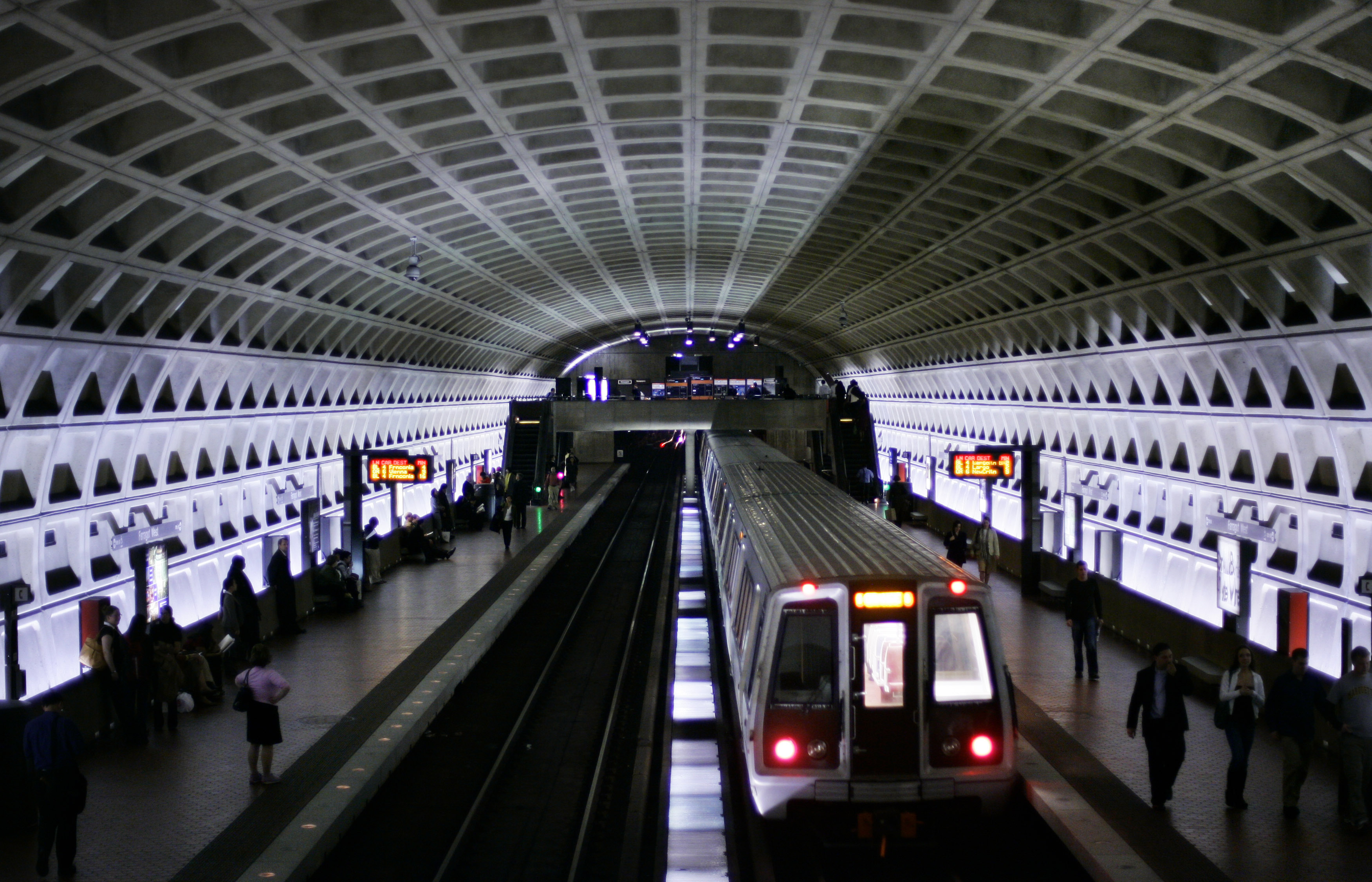WASHINGTON — In a sign of how far Metro has fallen, Metro’s board chair was asked a serious question during a meeting with regional leaders Wednesday. Who would own the tracks and rail cars if the metro system falls apart?
Loudoun County Supervisor Matt Letourneau asked Jack Evans the question at a regional Council of Governments meeting, and also asked whether parts of the system could be privatized.
Evans answered seriously, that he was not fully sure of that answer, but assumed that at least the tracks would revert to local jurisdictions.
After the meeting, when asked by WTOP, Evans described it as an “insane conversation.”
“Metro is not going to cease to exist, it’s the critical lifeblood that runs the region,” the D.C. Councilmember said.
Evans, a D.C. Councilmember, addressed the Council of Governments to answer questions about Metro’s planned yearlong track rehabilitation project that would significantly reduce service and shut down entire stretches of track for weeks at a time. The work is intended to shrink the backlog of overdue maintenance and to make the aging train system safer for riders.
Evans called questions about Metro’s long-term existence “insane.”
Montgomery County Councilman Roger Berliner, who chairs the Council of Governments, called the line of questioning unfortunate.
“There is no future for this region without Metro,” Berliner said.
Berliner said the region must draft legislation that would create a new, independent safety oversight agency for Metro and also must develop a proposal for a new regional tax dedicated to Metro all by the end of the year.
The discussion came as the Federal Transit Administration ordered Metro to make another round of urgent safety repairs Wednesday to curb dangerous fire and smoke incidents. A pair of similar events forced Metro to shutdown the Federal Center Southwest Station at the height of the rush hour last week.
The FTA, which has temporary safety oversight of Metro, says the transit agency must address power cable issues near Ballston, and clear out drains and do other maintenance near Van Ness and Potomac Avenue. In some cases the electrified third rail that powers the trains must be replaced.
In what seemed like a well-rehearsed stump speech, Evans waved reports and transcripts dating back more than a decade to make his point that the problems plaguing Metro have been studied to “death.” He reminded his fellow elected leaders that a woman died last January after she and other riders sat in a smoke-filled train for more than 30 minutes awaiting help outside the L’Enfant Plaza Station.
“The time to do nothing has passed,” Evans said. “Because if we do nothing, this system will continue to deteriorate.”
He said the regular jokes about the Metro system only having one fire in a day are not what the capital’s rail system should be known for.
“We have 13,000 people working for Metro. So a joke goes around: how many people work for Metro? Oh, about half. I don’t know any of these things are even funny. They’re sad, in a way, that the transportation system in the nation’s capital has become nothing but a standing joke,” Evans said.








